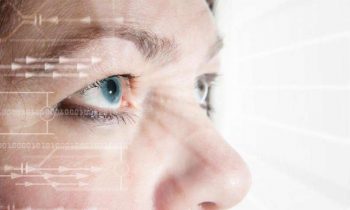- Home
- Editorial
- News
- Practice Guidelines
- Anesthesiology Guidelines
- Cancer Guidelines
- Cardiac Sciences Guidelines
- Critical Care Guidelines
- Dentistry Guidelines
- Dermatology Guidelines
- Diabetes and Endo Guidelines
- Diagnostics Guidelines
- ENT Guidelines
- Featured Practice Guidelines
- Gastroenterology Guidelines
- Geriatrics Guidelines
- Medicine Guidelines
- Nephrology Guidelines
- Neurosciences Guidelines
- Obs and Gynae Guidelines
- Ophthalmology Guidelines
- Orthopaedics Guidelines
- Paediatrics Guidelines
- Psychiatry Guidelines
- Pulmonology Guidelines
- Radiology Guidelines
- Surgery Guidelines
- Urology Guidelines
Macular degeneration: Drusen a promising biomarker for progression of the disease

Age-Related Macular Degeneration (AMD) is a common disease of the centre of the retina, primarily affecting those aged over 50. The first signs of the disease are so-called drusen, which occur under the retina in the form of round, yellow deposits. However, in some way that has not yet been unexplained, these disappear over time, leaving no trace, and this, in itself, is a sign that there is a very high risk of developing advanced AMD and going blind. Hrvoje Bogunovic from MedUni Vienna's Department of Ophthalmology has now developed a computer model that can be used with Optical Coherence Tomography (OCT) to analyze which drusen will survive and which will disappear: "This is a promising marker for progression of the disease."
Drusen are degradation products of the retina of the human eye. In themselves, they do not cause any symptoms or vision problems. They are therefore usually discovered by chance. In the recent study, which has now also been selected as one of the best three out of 6,000 abstracts submitted to one of the most important international ophthalmology conferences ((ARVO/Annual Meeting of the Association for Research in Vision and Ophthalmology), MedUni Vienna researchers examined a total of 38 patients and discovered 944 drusen. 249 (26%) of these disappeared.
Lead investigator Bogunovic and the team from MedUni Vienna's ophthalmology department have now successfully used the very latest Artificial Intelligence technology to develop a computer model to calculate the risk of drusen disappearing -- which happens in an intermediate stage of the disease -- and hence also the elevated risk of developing advanced AMD. And also, when this will happen.
Optical Coherence Tomography allows retinal diseases to be detected in high-resolution detail -- even in the early stages. "This gives us a non-invasive technique for looking into the retinal layers, so that we can detect minute changes early on," explains Bogunovic. However, reliable and standardised interpretation of the OCT data is only possible by means of computerised analyses. "Our findings are a promising step towards image-guided prediction of the progression of age-related macular degeneration. Our model enables us to compile a drusen atlas, as it were, which we can then use to predict, in the case of each individual patient, which are at greater risk of disappearing. This is precisely what we now want to evaluate in further clinical studies."
Each year, around 2.5 million people worldwide develop macular degeneration and it is the commonest cause of blindness in industrialised countries. Every year, around 30,000 people undergo OCT examinations at the Department of Ophthalmology at MedUni Vienna/Vienna General Hospital, which is the largest department of its kind in Europe.

Disclaimer: This site is primarily intended for healthcare professionals. Any content/information on this website does not replace the advice of medical and/or health professionals and should not be construed as medical/diagnostic advice/endorsement or prescription. Use of this site is subject to our terms of use, privacy policy, advertisement policy. © 2020 Minerva Medical Treatment Pvt Ltd